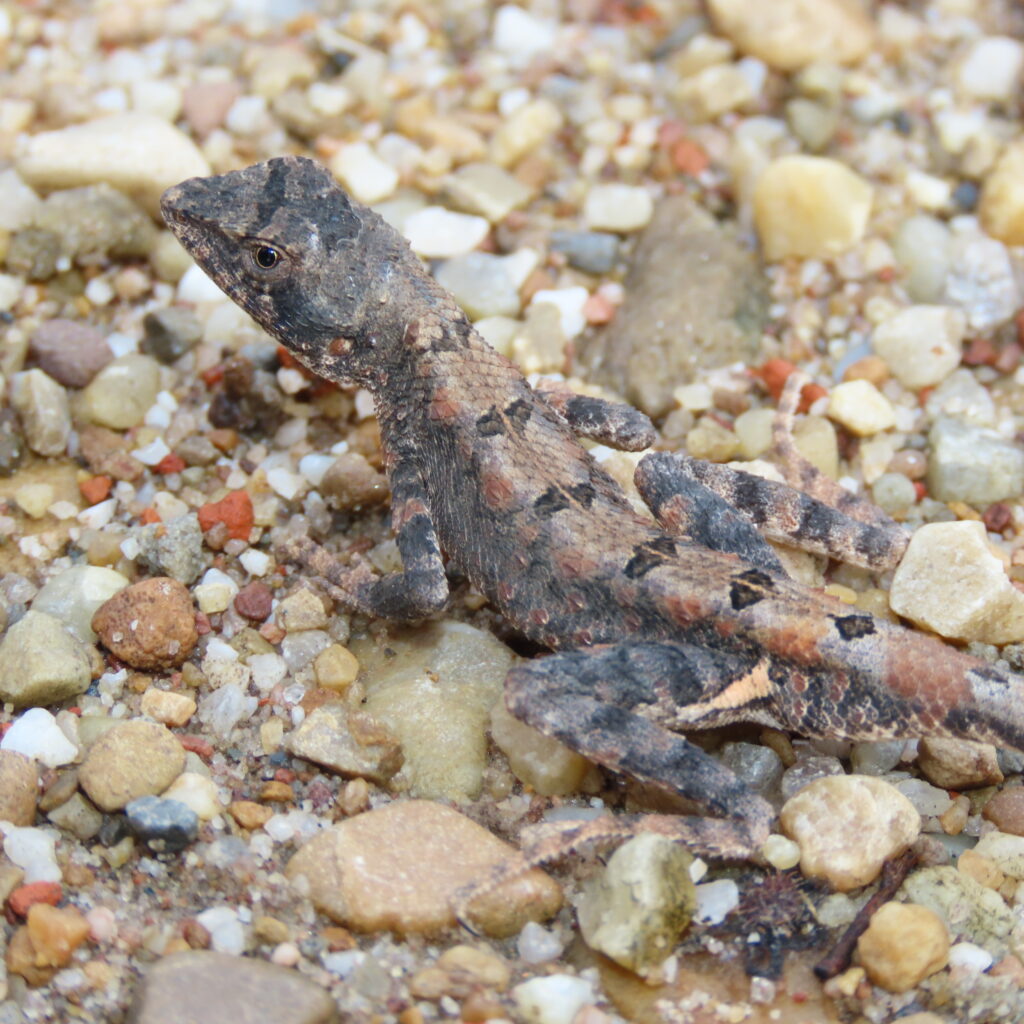Nepal is home to three species of sitana lizards, namely Shuklaphanta sitana (Sitana schleichi), Sivalik sitana (Sitana sivalensis) and the Dark sitana (Sitana fusca) belonging to family Agamidae. Among these three species, the Dark sitana is an endemic lizard listed as Critically Endangered on the International Union for the Conservation of Nature (IUCN) Red List of Threatened Species. In Nepal, Dark sitana is known only from Madhesh Province; and the type specimen was found in Bardibas, in Madhesh Province. The Bardibas area is growing rapidly as a transit point, connecting Madhesh province to Kathmandu, the capital city of Nepal. The ongoing expansion and urban development of the Bardibas area is a major conservation challenge for the species. Moreover, ecological information (such as abundance, distribution, and threats) and the natural history of this lizard are poorly understood. Very few conservation organizations are working in the area and even fewer are aware of the existence of the species and its critical conservation status.

This project will generate ecological data including distribution, abundance, habitat characteristics and identification of key threats. This information will set a baseline for long term monitoring and inform the development of a conservation strategy. In addition, a conservation outreach component of the project will raise the profile of this species among key stakeholders and local communities, improving conservation outcomes for Dark sitana. Key outputs will include occurrence maps showing conservation sensitive zones and site-specific conservation measures. Conservation outreach activities will raise awareness of and develop support for Dark sitana conservation. This will drive behaviour change to reduce activities which impact Dark sitana, including the use of intentional fire in Dark sitana habitat.
Supported by : The Rufford Foundation, UK


